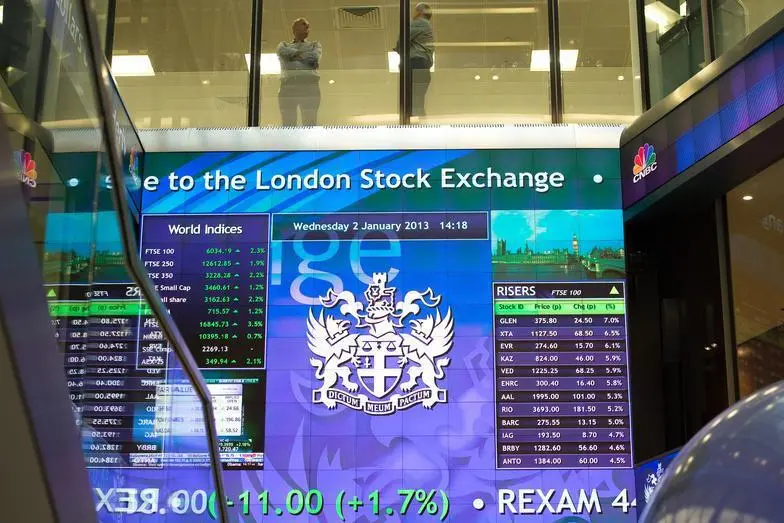PHOTO
LONDON - European companies have delivered positive surprises this earnings season but profit growth could dry up in a matter of months as high inflation and recession rattle the economy, potentially dragging the bear market out for even longer.
Over a third of the 600 companies on the pan-European STOXX 600 index have reported earnings so far and of those, 60% have beaten expectations, according to data from Refinitiv I/B/E/S, which noted that in a typical quarter, 53% would top forecasts.
Refinitiv data also shows analysts expect STOXX constituents to post quarterly earnings growth of 32.2% year on year, compared to just 4.3% for the benchmark S&P 500 index in the United States.
While many economists expect Europe to tip into recession next year and earnings growth to eventually dry up, the STOXX is already heading for its biggest annual loss since 2008 - down 14% - raising the question of just how much is already priced in.
"Historically it's pretty much unprecedented for the market to trough before we've even seen the start of the downward cycle, but it doesn't mean it can't happen," said Graham Secker, chief European equity strategist at Morgan Stanley.
"It's all about how much of the earnings decline is already in the price and can the market effectively bottom here, even if we've got a couple of quarters of earnings downgrades to come."
Refinitiv data shows annual earnings growth is expected to shrink to 20.5% in the fourth quarter of 2022 and to just 4.1% in the first quarter of 2023 before turning negative later in the year.
REVENUE BEATS FAIL TO TRICKLE THROUGH TO EARNINGS
Europe's booming energy sector is one factor propping up earnings along with a weaker euro, according to analysts, who also note how revenue in particular has exceeded expectations this earnings season.
Inflation has seen prices soar on the continent, but so far companies are showing they have been able to pass on rising costs.
Of the 243 that have reported revenue, 80.7% beat analyst estimates, compared with 58% in an average quarter, according to Refinitiv.
But Bernie Ahkong, co-chief Investment Officer at O’Connor Global Multi-Strategy Alpha, part of UBS Asset Management, said that while top line revenue beats have been strong, this has not translated into the same magnitude of earnings beats.
“Companies were able to pass through higher pricing than analysts expected, normally that would translate to better earnings and profits, but because of the stickiness and lag effect of costs, that is not coming through,” Ahkong said.
“As we move into 2023, the concern is we are going to see a lot of that pricing and top line benefit fade away while costs remain sticky.”
STOCKS: HOW LOW CAN THEY GO?
The STOXX technically entered a bear market in late September when it accumulated losses of more 20% from a January peak.
But the relatively few negative surprises in this earnings round may suggest there isn't much room left for further sharp falls, according to Morgan Stanley’s Secker.
“Our thesis at the moment is that we're not ready to say the bear market has finished. But a bit like we saw in 2008/2009 you could end up with a sort of a six-month bottoming process which is quite choppy,” he said.
According to UBS economists, European and UK stocks are already pricing in an 80% and a 68% probability of recession, respectively, compared with just 41% for U.S. stocks.
They expect the bottom for an index of eurozone stocks to occur in the second quarter of 2023, before it rises again towards the end of the year.
“Earnings have been quite benign, there is quite a lot already priced in,” said Suzanne Keane, senior portfolio manager at Amundi, Europe's largest asset manager.
"We have to keep an eye on what’s going on at a macro level and whether headwinds from inflation for example are going to be felt more keenly on some sectors," Keane said, adding that considering country-specific elements for European stocks “has been more important than ever”.
(Reporting by Lucy Raitano; Editing by Amanda Cooper, Kirsten Donovan)




















